Scanning my groceries at Føtex Food’s self-checkout on the second day of our stay in Copenhagen, I was met with a question I had never experienced at a supermarket in my small hometown in Georgia.
“Do you want to purchase a plastic bag?”
Why It’s Newsworthy: Denmark has the oldest existing plastic bag tax with retailers currently charging a minimum of 4 Danish Kroner, or roughly 50 cents, for each plastic bag purchased. This has not only caused a decrease in Denmark’s waste production but also a rise in the popularity of more eco-friendly bag options, like canvas tote bags.Cutting Down on Consumption and Cost
Finja Daetling and Lesson Daetling, two siblings enjoying the lunch they brought to the King’s Garden in their tote bag, thought that reusable bags were the “norm” in Denmark.
“Everyone uses tote bags for everything … like when you go for a picnic, but also grocery shopping,” Finja Daetling said. “Like you quite rarely see people actually using plastic bags.”
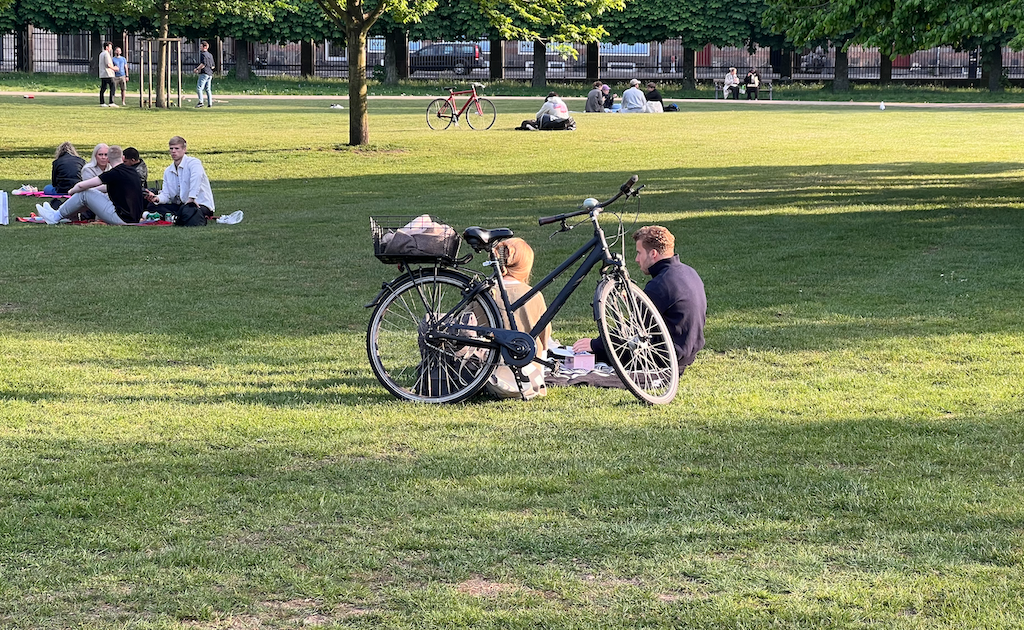
According to Green Budget Europe, a European expert platform on environmental taxation and green fiscal reform, the introduction of the original tax halved the consumption of plastic bags in Denmark from around 800 million bags to 400 million bags.
From their most recent data in 2018, one person in Denmark uses roughly 80 plastic bags per year. This is a sharp contrast from the United States, where plastic bag taxes are not mandated — one American is estimated to use more than 300 plastic bags in one year, according to Environment America.
Finja Daetling thought tote bags had gained popularity in Denmark because of their “sustainability aspect” but also because of their “convenience.”
“When you feel like you lose something, you try to avoid it. If you have to pay for it back, then you try to avoid it,” Lesson Daetling said. “And I can definitely say for myself, like I would walk home to get a tote bag to come back to the store in order to not have to pay for a plastic bag.”
Community, Creativity, and Considerable Amounts of Uses
Finja Daetling explained that she felt like a lot of people “just have [tote bags] with them wherever they go,” including herself. She explained they have a lot of uses, which could be why they are gaining international popularity.
“It’s also just become like a style thing. It’s just normal to use that as a bag, even like as an everyday bag sometimes,” Finja Daetling said. “You can be quite creative with them, like you have so many different designs and colors and all that.”
Ivan Alexis, a Danish design brand that specializes in canvas tote bags, is known for their “distinctive designs,” which attracts “tourists” and “people from Denmark” to the store.
Natasha Poulse, one of the workers at the store in Copenhagen, agreed that tote bags had gained popularity after the increased taxes for their various uses.
“I think a lot more people buy tote bags now,” Poulse said. “These bags are more usually for school or something, but yeah, I think people buy a lot more bags than they did before.”
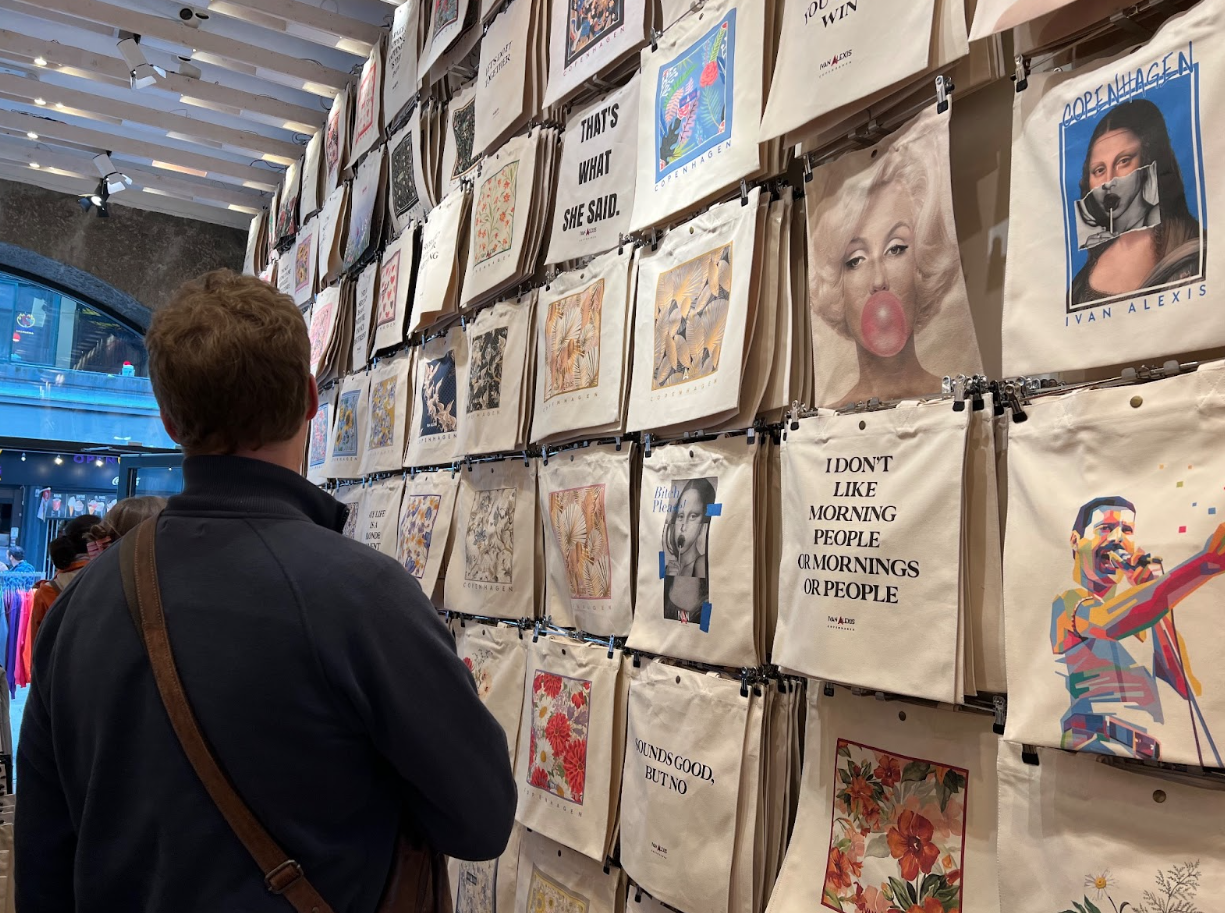
Finja Daetling explained that with it being “so common to use a tote bag,” there was a sense of self and communal accountability, or unspoken judgment, within Denmark around using plastic bags that tourists, like myself, may not be aware of.
“I think at this point, because it’s so common to use a tote bag, you’ll feel guilty taking a plastic bag,” Finja Daetling said. “The people around me are going to be like — why did she have a tote bag with her? So it’s even at that level, which is good in a way I guess that it’s become the norm not to use a plastic bag.”
Haley Roberson is a fourth year majoring in journalism and dance.


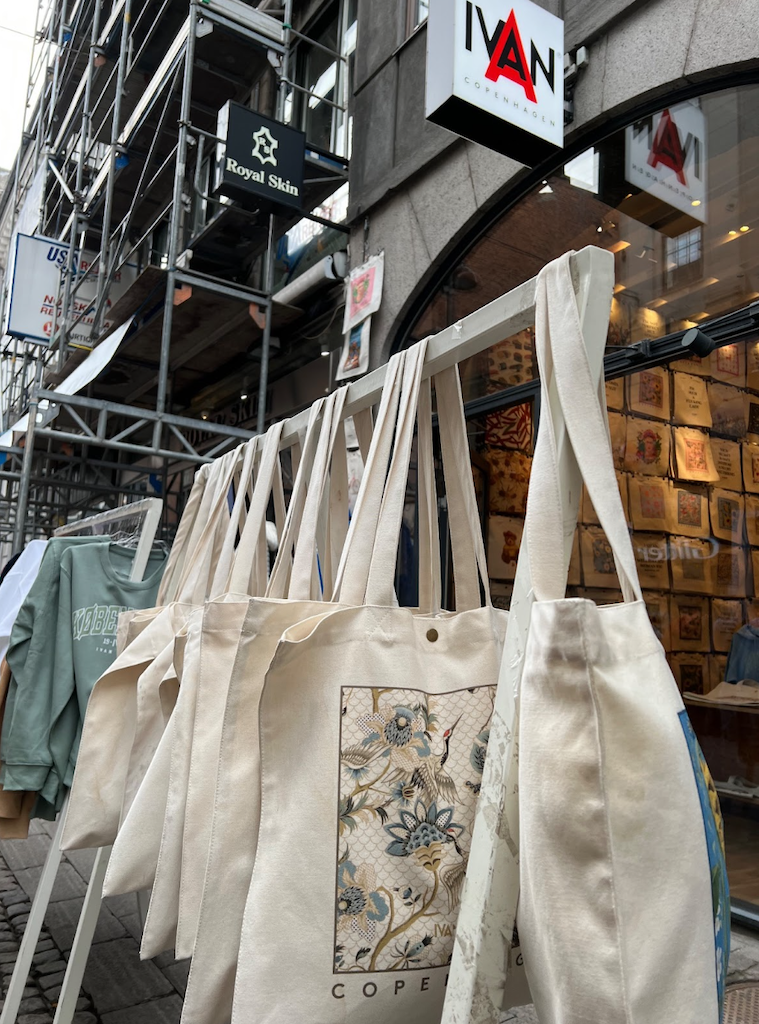


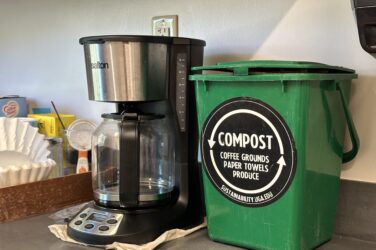

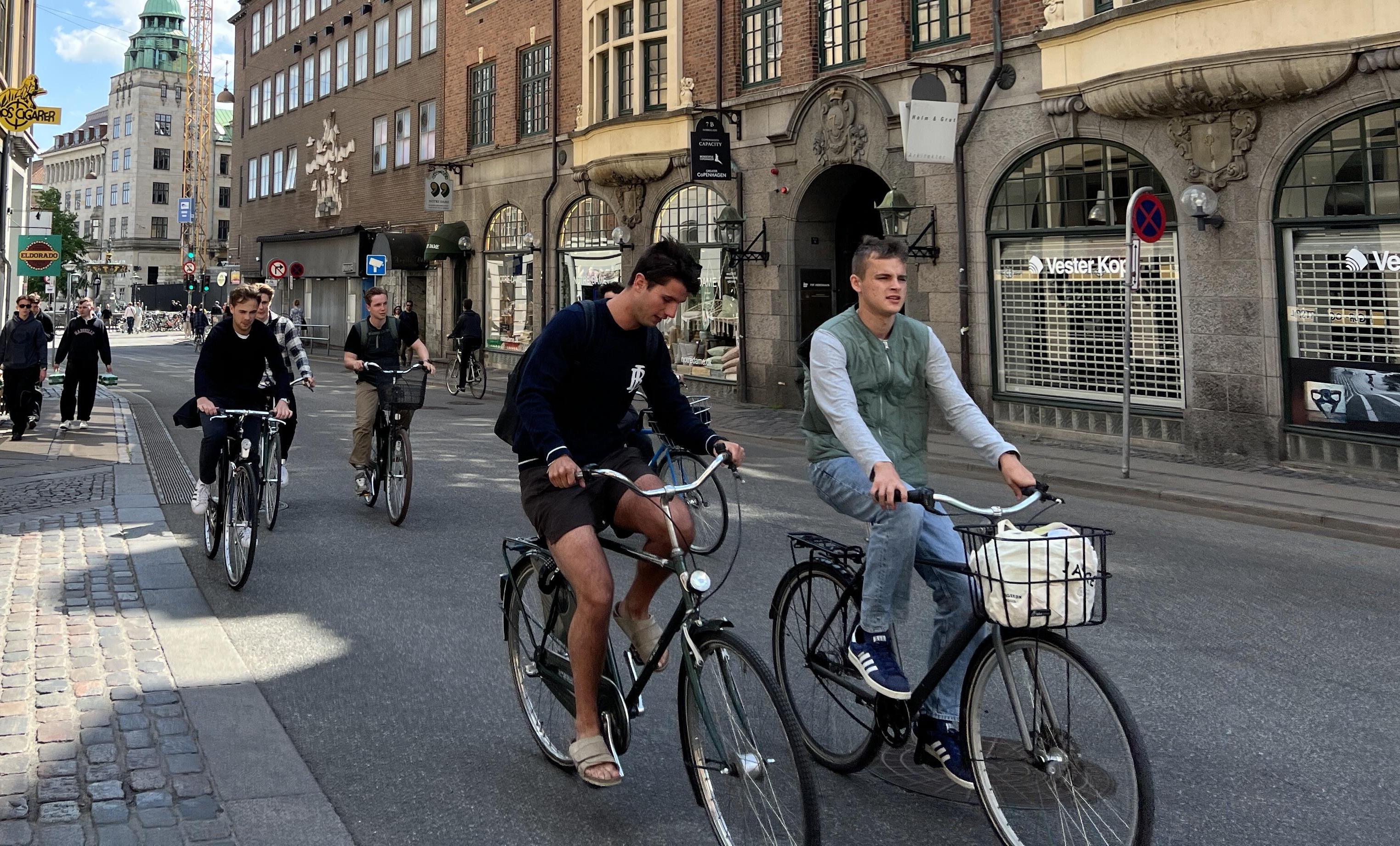

Show Comments (0)